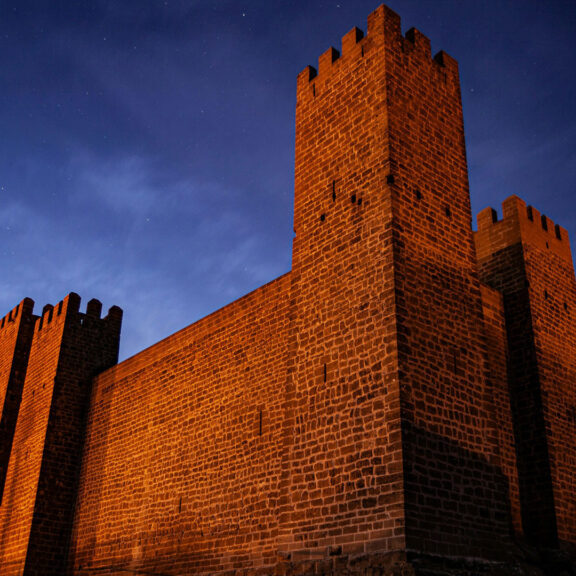September 24, 2023
Pastor Gunnar Ledermann
Matthew 20:1-16
Matthew 20:1-16
1 “For the kingdom of heaven is like a landowner who went out early in the morning to hire workers for his vineyard. 2 He agreed to pay them a denarius for the day and sent them into his vineyard.
3 “About nine in the morning he went out and saw others standing in the marketplace doing nothing. 4 He told them, ‘You also go and work in my vineyard, and I will pay you whatever is right.’ 5 So they went.
“He went out again about noon and about three in the afternoon and did the same thing. 6 About five in the afternoon he went out and found still others standing around. He asked them, ‘Why have you been standing here all day long doing nothing?’
7 “‘Because no one has hired us,’ they answered.
“He said to them, ‘You also go and work in my vineyard.’
8 “When evening came, the owner of the vineyard said to his foreman, ‘Call the workers and pay them their wages, beginning with the last ones hired and going on to the first.’
9 “The workers who were hired about five in the afternoon came and each received a denarius. 10 So when those came who were hired first, they expected to receive more. But each one of them also received a denarius. 11 When they received it, they began to grumble against the landowner. 12 ‘These who were hired last worked only one hour,’ they said, ‘and you have made them equal to us who have borne the burden of the work and the heat of the day.’
13 “But he answered one of them, ‘I am not being unfair to you, friend. Didn’t you agree to work for a denarius? 14 Take your pay and go. I want to give the one who was hired last the same as I gave you. 15 Don’t I have the right to do what I want with my own money? Or are you envious because I am generous?’
16 “So the last will be first, and the first will be last.”
At the end of practice, the coach asked all the players to pick up all their equipment and they would get a pizza party. After about ten minutes, some cheerleaders walked by, and the coach asked them to help pick up the equipment. After another 5 minutes, some band members walked by, and the coach asked them to help pick up the equipment. When they all finished, the coach invited all of them to the pizza party. The cheerleaders and members of the band were thankful, but the players were upset because they had been cleaning up longer than the others.
We expect to get something for our efforts. This idea was expressed in Matthew 19 by a rich young man who asked Jesus, 16 … “Teacher, what good thing must I do to get eternal life?” 17 “Why do you ask me about what is good?” Jesus replied. “There is only One who is good. If you want to enter life, keep the commandments.” Jesus wanted the young man to understand that only God is good, and no one can do enough to get eternal life. So, he continued, 21 … “If you want to be perfect, go, sell your possessions and give to the poor, and you will have treasure in heaven. Then come, follow me.” 22 When the young man heard this, he went away sad, because he had great wealth. After listening to Jesus’ interaction with the young man, Peter spoke up and said, 27 … “We have left everything to follow you! What then will there be for us?” Jesus assured his disciples that all who follow him will be blessed. Then, he followed up by saying, 30 “But many who are first will be last, and many who are last will be first.” We expect to get something for our efforts. We also expect to get more for working harder.
This morning’s Gospel reading from Matthew 20 occurred right after Jesus’ interaction with the rich young man and conversation with his disciples. Expanding on his words from Matthew 19, 30 “But many who are first will be last, and many who are last will be first.” Jesus told this parable, 1 “For the kingdom of heaven is like a landowner who went out early in the morning to hire workers for his vineyard. 2 He agreed to pay them a denarius for the day and sent them into his vineyard. A denarius was the usual daily wage of a day laborer.
3 “About nine in the morning he went out and saw others standing in the marketplace doing nothing. 4 He told them, ‘You also go and work in my vineyard, and I will pay you whatever is right.’ 5 So they went. “He went out again about noon and about three in the afternoon and did the same thing. 6 About five in the afternoon he went out and found still others standing around. He asked them, ‘Why have you been standing here all day long doing nothing?’ 7 “‘Because no one has hired us,’ they answered. “He said to them, ‘You also go and work in my vineyard.’
At this point, all the workers have been hired, and there are two groups: the first agreed to their payment ahead of time and the second were willing to take whatever was given to them. Jesus continued, 8 “When evening came, the owner of the vineyard said to his foreman, ‘Call the workers and pay them their wages, beginning with the last ones hired and going on to the first.’ Notice, Jesus intentionally puts the last ones hired first in line for their payment, and the first ones hired to get their payment last.
9 “The workers who were hired about five in the afternoon came and each received a denarius. 10 So when those came who were hired first, they expected to receive more. But each one of them also received a denarius. 11 When they received it, they began to grumble against the landowner. 12 ‘These who were hired last worked only one hour,’ they said, ‘and you have made them equal to us who have borne the burden of the work and the heat of the day.’
Using the workers who were hired first and agreed to the denarius, Jesus revealed our temptation to expect to get more for working harder.
The owner of the vineyard in Jesus’ parable did not treat the workers fairly. In the parable, the owner of the vineyard is God, and the workers are believers. Through the parable, Jesus exposed our temptation as believers is to expect more from God if we have been believers longer. We want more from God if we have avoided temptation and endured suffering for our faith longer than someone else. These feelings come up when in our eyes someone who has engaged in sins we deem especially wrong comes to faith, or when someone comes to faith on their death bed. These are the kind of hypocritical, jealous feelings of the prophet Jonah.
God told Jonah to warn the wicked city of Nineveh of its destruction, but Jonah did not want to go. So, he tried to run away, which landed him three days in the belly of a great fish, being vomited back up and finally going to Nineveh. After warning them that they would be destroyed in 40 days for their wickedness, the king and his people listened and called on God to have mercy on them. We hear God’s response in our Old Testament reading from Jonah 3, 10 “When God saw what they did and how they turned from their evil ways, he relented and did not bring on them the destruction he had threatened.” God graciously spared an entire city from destruction because they asked for his mercy. But then, we hear Jonah’s response in Jonah 4,
1 But to Jonah this seemed very wrong, and he became angry. 2 He prayed to the Lord, “Isn’t this what I said, Lord, when I was still at home? That is what I tried to forestall by fleeing to Tarshish. I knew that you are a gracious and compassionate God, slow to anger and abounding in love, a God who relents from sending calamity. 3 Now, Lord, take away my life, for it is better for me to die than to live.” 4 But the Lord replied, “Is it right for you to be angry?”
Jonah felt the Ninevites deserved little if anything from God. The book of Jonah ends with the prophet sitting outside the city angrily waiting to see what God would do.
We expect God to be fair. We expect God to bless believers for being good and give bigger blessings to those who have been believers longer. When we do not feel God is doing this, we act like Jonah or the workers who wanted more than the agreed upon denarius. We want God to bless the cities with good people who reflect Biblical morals. We speak out, post about and wish ill will on other cities, the wicked cities that we want destroyed. Or maybe you do want those wicked cities to turn to God, but you certainly do not want to be the one to go there proclaiming, “Jesus.” Even more, we want more blessings in our lives because we are better Christians than others. We live, work, congregate, even serve alongside other believers with smiles and encouragements, but inside we are jealous when they get the blessings that we feel we deserve. Our sinful hearts set the standard of fairness and who deserves more blessings from God to benefit ourselves most. Our critical attitude of others and entitled attitude toward God is empty of love.
God is not fair. To the grumbling workers who were disappointed in what they agreed to work for, the owner of the vineyard
13 … answered one of them, ‘I am not being unfair to you, friend. Didn’t you agree to work for a denarius? 14 Take your pay and go. I want to give the one who was hired last the same as I gave you. 15 Don’t I have the right to do what I want with my own money? Or are you envious because I am generous?’ 16 “So the last will be first, and the first will be last.”
The workers had no right to be angry, jealous or critical of the vineyard owner because they had agreed to the denarius, and he paid them a denarius. Instead, they criticized his generosity. The reason for the vineyard owner’s generosity was that he wanted to be generous. There was no logical reason, and it was not fair, but that was Jesus’ point. The love God has for us is not logical or fair. God sent Jesus to die for our critical, self-centered sinful attitudes and all our other sins. When death was the fair wage for our sinful lives, Jesus paid the ransom price with his life to save us. Ephesians 2 says, 4 But because of his great love for us, God, who is rich in mercy, 5 made us alive with Christ even when we were dead in transgressions—it is by grace you have been saved. God’s love is not fair; he gives his blessing of eternal life in heaven to all who believe regardless of when they came to faith or how much they have done or served in his kingdom.
Thank God for his generosity. In our New Testament reading from Romans 9, Paul reminded the Christians in Rome that it is the promise of God, not our efforts that bring us God’s love using the example of Abraham. God promised to make Abraham into a great nation, but he and his wife, Sarah, grew impatient and attempted to create that nation apart from God’s promise having Abraham sleep with her servant Hagar. That son did not carry the promise. Instead, God miraculously allowed Abraham and Sarah to conceive, and to that son’s descendants was born Jesus. Therefore, Paul reminds us in Romans 9, “16 It does not, therefore, depend on human desire or effort, but on God’s mercy.” Your future reward is heaven through Jesus. He was treated unfairly, so that God could treat you unfairly. It is not our desire or effort, but God’s mercy that has saved us. Your place in God’s kingdom is the generous gift and guarantee of our God.
When Jesus was asked about doing something to get eternal life in Matthew 19, 17 … Jesus replied. “There is only One who is good. If you want to enter life, keep the commandments.” The word translated ‘good’ comes from the same word Jesus used in his parable to describe the vineyard owner’s ‘generosity.’ And the term ‘want’ is the same word Jesus used to describe the vineyard owner ‘wanting’ to give a denarius to all and do what he ‘wants’ with his money. In his parable, Jesus reminds us that God wanted us to be in his kingdom and God generously gives us eternal life in heaven. While we do his work in this world, others will be added to his kingdom who share the same reward. We work together as believers by the grace of God, do not criticize him or others. Instead, pray others are added to the kingdom. Give thanks because God does not treat us fairly. Instead, God wants to be equally generous with his gracious gift of eternal life. Amen.




